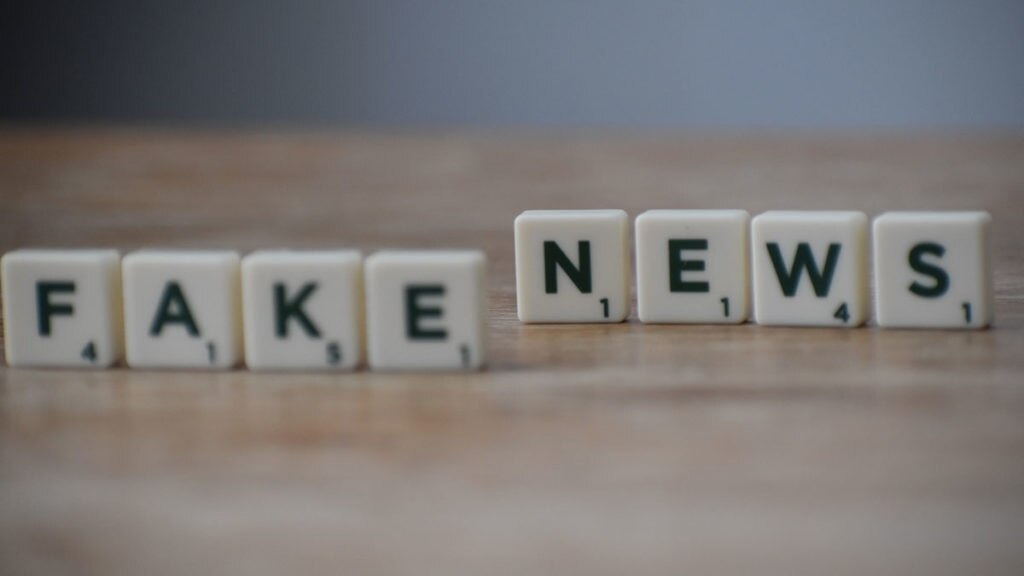How technology is fighting misinformation during COVID-19
The coronavirus pandemic has brought about a wealth of misinformation. Learn more about how technology is helping filter out fact from fiction.

In this constantly-evolving COVID-19 landscape, finding accurate, reliable sources of information seems more difficult that usual. The BBC reports that the government’s rapid response unit of fake news is dealing with as many as ten incidents per day.
The World Health Organisation (WHO) has declared an ‘infodemic’ of misinformation and false claims about COVID-19, some of which could be potentially life-threatening. The United Nations Secretary-General called the spread of misinformation, “a poison that is putting even more lives at risk,” and launched a new communications response initiative to provide people with facts and scientific evidence about the virus.
At the heart of the fight against misinformation is the technology industry. Tech companies are in a perfect position to help people filter through false information, authenticate news and share accurate stories. From identifying and removing misleading stories with artificial intelligence, to prohibiting the mass forwarding of messages, technology is leading the way in fighting false claims.
The tech platforms supporting accurate information
A number of tech platforms are working to better identify misinformation and remove content that spreads false claims. The task is far from easy, particularly when a large amount of misinformation is being spread through private groups. Platforms need to ensure that accuracy is being brought to the fore and promoted so that people’s main sources of information are factually correct.
Google’s search engine is actively highlighting COVID-19 content from WHO in the form of COVID-19 alerts, providing searchers with local and national information and resources. The alerts provide information on symptoms, prevention, treatments and latest statistics.
Google’s platform, YouTube is also using its homepage to direct users to WHO resources for local and national information on the virus. The platform is working to safeguard users from phishing, conspiracy theories, malware and misinformation, while actively looking for new threats. On Google Ads, the platform has blocked tens of thousands of ads over the last few weeks that are trying to capitalise on coronavirus.
Facebook is also removing content that makes false claims about cures, treatments and the severity of the virus, as well as content that could contribute to physical harm. On Instagram, the company is removing all COVID-19 content that hasn’t been posted by official health organisations.
A number of tech organisation have also contribute to WHO’s COVID-19 Solidarity Response Fund, including Apple, Cisco, LinkedIn, Microsoft and Spotify.
Tech partnerships with public health bodies
A number of partnerships have formed between tech companies and public health bodies to help reduce the amount of misinformation online. Twitter, Instagram and Facebook have all partnered with NHS England to provide over 800 NHS accounts with verified ‘blue tick’ status.
Google is also working with the NHS to introduce Knowledge Panels in its search results that provide easy access to NHS information on over 250 health conditions, including coronavirus.
What’s more, a number of major social media platforms, including LinkedIn, Microsoft and Reddit have issued a joint statement pledging to keep information accurate. The statement reads: ‘we invite other companies to join us as we work to keep our communities healthy and safe.’
How artificial intelligence is helping identify false claims
Avaamo, a deep-learning software company has recently built a virtual assistant using artificial intelligence to answer COVID-19 queries.
The chatbot uses natural language processing to turn questions about the pandemic into website and database queries.
It draws information from reputable sources such as Centers for Disease Control and Prevention (CDC), National Institutes of Health (NIH) and Johns Hopkins University. Avaamo has also made the tool free for businesses to use.
How companies can combat misinformation
All companies have a responsibility to ensure that they provide their staff and customers with accurate information. Before sharing any advice or pandemic updates, companies should double check the source. The Centers for Disease Control and Prevention (CDC) and the World Health Organisation (WHO) are two of the most trusted sources online for COVID-19 updates. When sharing information on COVID-19, it’s always a good idea to link to the original source.
Providing accurate information not only keeps people safe, but it can help businesses build their profile as trusted employers. This can help create long lasting relationships with candidates and enable companies to be seen as employers of choice.
During this time, it’s important for employers to focus on building their brand and to keep an open dialogue with candidates. CWJobs’ recruitment platform enables employers to communicate with candidates openly using keyshots. Employers can also benefit from our video conferencing software, so interviews can be conducted remotely.